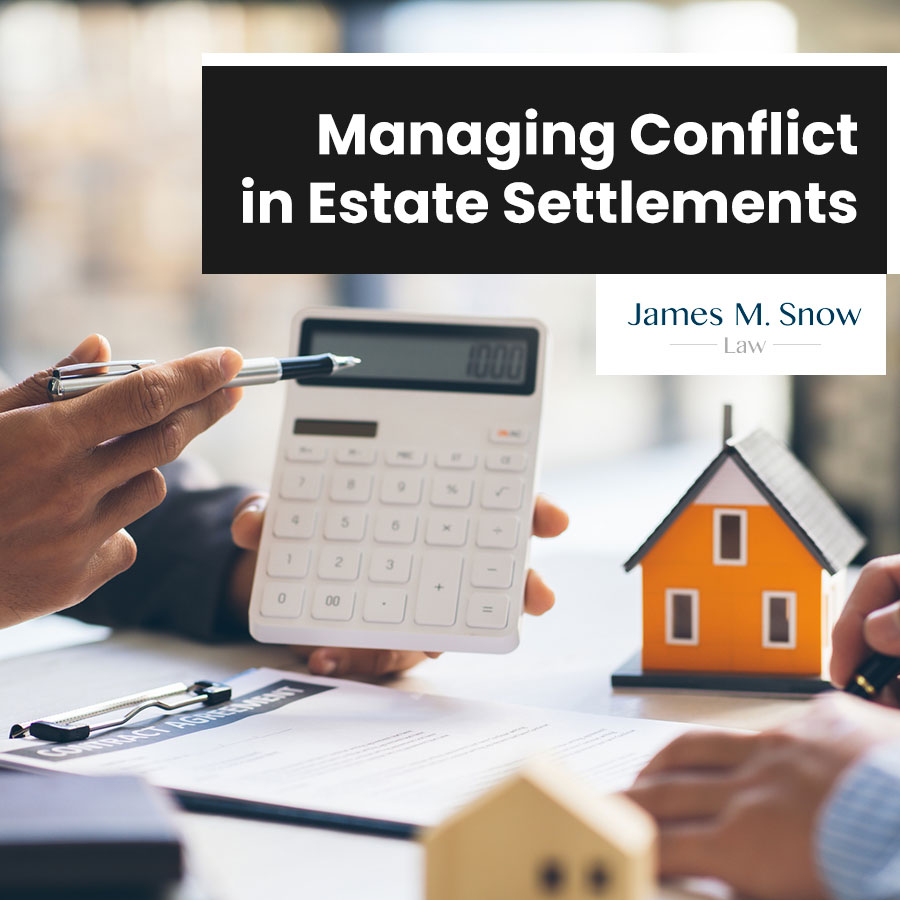When a person close to you passes away, it is natural to go through a period of sadness and mourning. The time for mourning is different for everyone, but everyone in this period can agree that conflict and arguments are the last thing that you need. If there is an estate settlement where you are confident arguments will arise, there are a few things you can do to handle or even prevent these conflicts.

Of course, one of the best things that you can do is ask your loved one to discuss his or her will while he or she is still alive with all of the potential heirs. When this happens, it can sometimes eliminate questions about what the deceased intended.
However, many individuals die without discussing their estate plan with their heirs, and conflicts arise between the appointed estate representative and the heirs. In other cases, the deceased failed or refused to leave a will. One of the best things you can do if you have a good idea of a conflict that will arise is to try and resolve it between you and that individual before beginning the estate settlement process where there will be specific requirements and deadlines that have to be met. If you feel you cannot directly discuss the conflict with the other party, a good alternative is to use a mediator. These experts in behavior can keep high emotions from bubbling over into arguments that can cause people to say hurtful words in an already painful time.
To learn more about handling conflict or estate settlements, give us a call here at James M. Snow Law.
